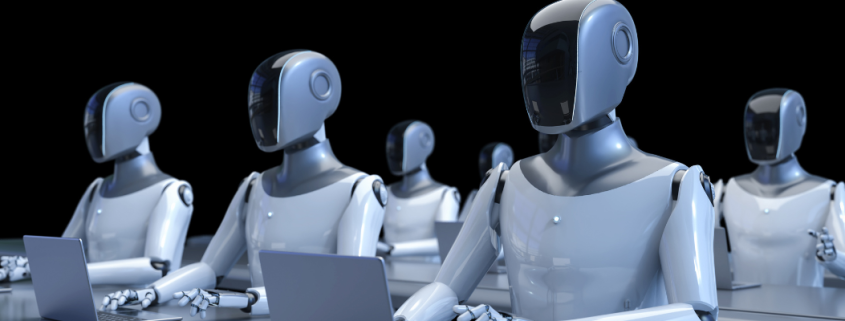How embracing AI with an open mind could help improve career resiliency
Audio Deep Dive and Article Overview
Listen to this 11 minute overview discussing AI adoption and career resiliency
Everyone is talking about AI
Recent conversations within my inner circle keep circling back to the same question: what will our jobs look like in the decades ahead?
From boardrooms to breakrooms to dinner tables, the horizon of work is no longer abstract—it’s personal and hits a bit close to our comfort zone. Adopting AI may seem like a big deal to some of us. But to my youngest children, it’s simply the world they know, and are eager to embrace.
Young minds easily adapt to artificial intelligence tools
My ten-year-old is embracing AI as naturally as previous generations adapted to pencils and pens—arguably even more quickly. He’s my fourth child, started school during the COVID years, and has been raised in a very different environment than my older children. (Mama tried, but Mama’s tired, right?)
Combine that with his innate interest in digital technology, and it’s clear that personality and curiosity play a role in adopting new tools. Young minds are remarkably agile and can adjust quickly, but where does that leave the rest of us?
AI is the new industrial revolution
Artificial Intelligence (AI) shrinks the knowledge gap and levels the playing field. Just as the Industrial Revolution transformed economies, AI is transforming the way we work, produce, consume, and interact.
My most recent project engagement actually focused on forefront AI research. One article I read stood out, stating that (I summarize) after a year-long beta and adoption period, scientists reported being “extremely surprised” by AI’s ability to crack difficult challenges in all areas of research. Some estimated that AI can retrieve and organize information, find correlations, make future forecasts, and automate tasks in that once took decades – now, in under an hour. At any rate, new AI tools are as revolutionary as the first calculator and early computing capabilities.
Some early adopters of AI will scale success
In an article published on MSN.com, Open AI CEO, Sam Altman is quoted, “There’s never been a more amazing time to go create something totally new, to go invent something, to start a company, whatever it is.” Altman suggested that a one-person company could become worth more than a billion dollars, while delivering an amazing product and service to the world.
“If I were 22 right now and graduating college, I would feel like the luckiest kid in all of history,” – Altman
AI presents huge opportunities for those ready to embrace it, but experts warn of serious challenges for older workers who may resist retraining. Some tech leaders, including Anthropic’s CEO, caution that AI could eliminate up to half of entry-level white-collar jobs within five years, and that society and policymakers are not adequately preparing for this shift [1 MSN.com]
A front seat to AI research and integrated scientific discovery
Over the past year, I’ve had a front-row seat to some of the most fascinating AI research in the country while interviewing teams at a forefront research laboratory. These multidisciplinary experts—data scientists, computer scientists, software engineers, and high-performance computing experts—are exploring how advanced AI can be applied to incredibly complex scientific challenges.
My role was simply to optimize their research case studies and bring visibility to their work, but the research and innovation I saw was nothing short of astonishing. As impressive as AI already is, it feels like we’ve barely begun to tap its potential. It’s clear the technology already exists to automate—and in many cases “roboticize”—an extraordinary number of jobs.
Will we adapt?
So where does that leave us? Hopefully, in a place of curiosity and courage, ready to embrace lifelong learning, adapt, and grow.
So take a deep breath and say it with me: “No matter our age, it’s never too late to evolve alongside technology. We can and we will adapt to not only survive, but thrive because we are clever, curious, and not done till we’re dead.”
Stay tuned—I’ll continue to unpack this topic as time and bandwidth allow.
Next up:7 sales-marketing tips to help us pivot like the cat
Sources:
-
MSN Business Insider, Story by
Article Summary:
This piece explores the transformative impact of Artificial Intelligence (AI) on the future of work and individual roles, drawing parallels to the Industrial Revolution’s societal shifts. The author emphasizes the adaptability of younger generations to AI, contrasting it with the potential challenges faced by older workers. The text highlights AI’s capacity to exponentially accelerate research and innovation, citing expert observations on its problem-solving abilities. It also addresses the economic opportunities for early adopters and the potential for significant job displacement, particularly in entry-level white-collar positions. Ultimately, the source advocates for curiosity, courage, and lifelong learning as essential traits for navigating this evolving technological landscape.
More articles on building resilience in the AI era:
This is the final piece in my three-part series on agility in the age of AI. In the first, we explored business agility. In the second, personal agility. Now, we bring it home—how AI will reshape the very roles we hold and the future we’re building.




Leave a Reply
Want to join the discussion?Feel free to contribute!